- Home
- Tamara Leigh
THE VEXING: A Medieval Romance (AGE OF FAITH Book 6) Page 2
THE VEXING: A Medieval Romance (AGE OF FAITH Book 6) Read online
Page 2
“I am Sir Durand of Queen Eleanor’s personal guard. The lady is?”
“Of no consequence, Sir Durand. We—”
“Of no consequence? The Count of Verielle’s men trespass upon King Henry’s lands for a woman who warrants no name?”
Then he knew the identity of their pursuers. That boded ill.
With a smile so tight it looked more a grimace, Sir Norris dipped his chin. “I can but own I am charged with delivering the lady to her family.”
“And yet you nearly lost her.”
“Thus, we appreciate your aid. But now—”
“For what did the count seek her capture?”
Sir Norris’s shrug was hesitant. “Who can say why men do such things? As ever, lawlessness abounds.”
“Indeed.” It was so drily spoken, she wondered why Sir Durand did not take the wineskin from his belt and wet his mouth.
Sir Norris sat taller. “As we are under the press of time, we must continue on our way.”
“Which way is that?”
“’Tis of a private nature, Sir Durand.”
“No longer. As it was across King Henry’s lands you set your course, he will have the answers you refuse me.”
Dear Lord, it shall come to pass, the woman lamented. Out of the count’s reach only to land in Henry’s lap. And he and Eleanor shall know me.
Anger was momentarily dampened by dread, but the former quickened. Being an emotion with which she had too little experience, she struggled to keep hold of it lest it made her situation worse.
“Sir Durand,” Sir Norris said, “I am certain King Henry—”
“Nay, you are not.” The knight looked past him. “Sir Jessup!”
A young man with a sword across his lap and one in a scabbard at his side, urged his horse forward. “Yours, sire.” He passed the unsheathed blade to Sir Durand.
When did he lose it? she wondered. Whilst she fought Sir Renley and him as they sought to tear her in two?
“Retrieve the mare and see the lady astride.” Her supposed savior jerked his chin at her horse whose flight had ended at the tree line. “Our dinner grows cold.”
She caught her breath. Her life had taken another terrible turn, and he worried over stuffing his gullet?
Tongue, stay still, she entreated. If not for me, then Conrad.
Sir Jessup grunted. “If dinner is yet to be had.”
I hope ’tis ice in your mouth, she fumed as that one moved toward her mare. May it go down like fouled snow.
“And here are the rest of us,” Sir Durand announced as pounding hooves heralded the return of those who had chased away her pursuers.
Though the possibility of escaping an audience with King Henry had been slight, now it was hopeless. Unless God was of a mind to right this wrong, England might remain a distant shore.
Shortly, Sir Jessup assisted her into the saddle. Though she rarely required aid in mounting, being no slight thing and Conrad having come around to her way of thinking, she ached so deeply she was grateful for the aid—and that he did not appear to catch the ring of coins in her mantle’s hem.
Accepting the reins passed to her, she peered out from beneath her hood at Sir Durand.
“To Bayeux!” he shouted.
Despite his yearn to fill his belly, he set an easy pace that, by the time the great fortress came into sight an hour later, had allowed her to calm her frustration sufficiently to play the role for which she was best known—a most unusual wife.
CHAPTER TWO
She was hardly petite and more pretty than not—providing she did not open her mouth without benefit of a smile. In terms of her prospects, that smile was so bright and broad it could be forgiven the small gap between her front teeth. But her laugh…
Ladies were not meant to express joy in that manner. It was too loud and quick, and when it eased, often it was but to take in more air with a gasp husky at its start and almost shrill at its end. Then more laughter.
From alongside the stairs on the eastern end of the great hall, Durand had watched her a quarter hour as she conversed with knights gathered around her before the cavernous hearth. Hers was a group absent other ladies, many of whom kept their distance whilst watching the peculiar one in their midst and speaking near with one another.
They could be excused their prattle, Durand supposed. The lady was fascinating.
Of course, he was interested in her only as long as she did not become interested in him. Though never had he been so often in the company of women than since entering King Henry’s service three years past, and others envied him the opportunities for flirtations, kisses, and caresses, none of Eleanor’s ladies moved his heart with longing as once—nearly twice—it was moved. And that was a good thing, for it kept beyond arm’s reach the temptation and sin that had almost been the end of him when he served the Wulfrith family and felt for Lady Beatrix—
The woman laughed again at something a knight spoke at her ear, tossing her chin high and causing her veil to shift and allow a glimpse of dark hair.
Again, he wondered who she was and her purpose at court. A guest who had accompanied her husband to keep Christmas with their sovereign? The daughter of a vassal who hoped to add his indelicate offspring to the ranks of Eleanor’s ladies?
That last made Durand chuckle. If the queen had agreed to take the woman into her household, she would soon return her. Indeed, were Eleanor present now, she would put an end to the lady’s behavior.
He sighed. Having been absent a fortnight to attend to Henry’s business in Rouen—a boon considering whose visit to Bayeux he had avoided—he would have to bring himself current on what had transpired. And the men entrusted with Sir Norris’s party when the king had summoned Durand upon his return, would oblige him over tankards of ale. Providing they could be coaxed away from that woman.
He strode forward, and she glanced his way, glanced again, and lowered her smile.
His face, over which Henry had not been quietly amused, probably offended. But he did not care. He was simply grateful his eye had not swollen shut.
When he was a stride from the gathering, the woman turned to the knight who came alongside her.
“My lady.” He bent over her hand. “I am Sir Oliver.”
There was her smile again, bright even in profile, and it stayed Durand from ordering the knights behind whom he paused to take drink with him.
Sir Oliver straightened. “You are?”
She clicked her tongue. “Ah, Sir Oliver, do not pretend you have not inquired. I laugh too often and loud for the curious not to ask after me, even if only to know what name to pair with a curse.”
Her admirers laughed.
Durand did not. As much as he did not care to be intrigued by a woman, he was—and appalled to hear her speak thus.
“A curse?” The knight’s eyes lowered to her chest. Despite her bodice’s modest cut, it did not hide that she was well endowed. “I cannot imagine cursing you, dear lady.”
She slid her hand from his. “Oh do imagine, Sir Oliver. It makes for interesting thought which might otherwise be…dull.” Another smile, but this one did not fool Durand.
The knight was misbehaving as much as she, and though it was unlikely the lady knew her would-be suitor was wed, it was obvious she did not care to be looked upon in such a manner.
One redeeming quality, Durand allowed.
Sir Oliver’s brow rumpled, as if he questioned whether to be offended, but then the lady laughed, and he smiled.
She turned forward again and inclined her head. “Sir Durand Marshal.”
Barely containing his surprise, he berated himself. Of course she knew him, just as he ought to know her. In his defense, he had not looked near upon the lady. Other matters had been too pressing—reaching her ahead of the count’s men, snatching her from her horse, keeping them from landing beneath his destrier’s hooves. And when he could have become familiar with her countenance, he had not been inclined and had allowed her to hide beneath the hood.
Too, there was a marked difference between their first encounter when she had been quiet beyond the usual reach of a woman’s tongue—except for screams and shrieks—and this encounter that exceeded the reach of any woman’s tongue he had known.
Still, you are a Wulfen-trained knight, Durand Marshal, he silently chided. Was not judicious observation among your lessons?
The lady smiled at the other knights. Then with a rustle of unsullied skirts that showed her journey across Henry’s lands were planned well enough to allow for a change of clothes, she stepped forward—stiffly, as expected considering the means by which she had dismounted his destrier.
The knights on either side of him moved aside, and she halted before him. Though she stood several inches shorter than he, she was no small thing, but neither was she of an ungainly height. And just as she was generously endowed above, her hips were defined past a slender waist.
Tilting her head to the side, she considered his bruised and scratched face. “I should apologize.”
That he did not expect. Though irked by her resistance to his rescue, he understood she could not have known he spoke true in claiming to be Henry’s man.
He summoned a practiced smile, just enough to appear genial without encouraging affection to which many of the queen’s ladies were partial. “As should I,” he said. Of course, in a manner, he had. After tossing her distant from his destrier’s hooves, he had expressed the hope she would forgive him.
The lady raised her eyebrows.
He raised his.
When moments passed and neither voiced remorse and dozens of eyes made themselves felt, she laughed. But the sound that rolled off her tongue did not ring true.
Had it before? Had he been too distant to detect the false note? Or was this laughter exclusive to him? If not the latter and her mirth was forced, it was understandable considering how sore she must be.
Her laughter ended on a sigh that sustained the bow of her mouth. “It seems we are at an impasse, Sir Durand.”
“You make it sound adversarial.”
She put her head to the side. “What would you call it?”
He shifted his weight. Never had he met a lady so outspoken, albeit in a playful manner—
Deceptively playful, he amended. The woman he had wrested from her horse might be the same physically, but she was not the same in spirit. She had come about too quickly. But he would banter with her and discover what game she played.
“What would I call it if not an impasse?” He shrugged. “Perhaps ’tis more a matter of one offense canceling another.”
Her lips twitched. “I rather like that.” Though some might name the glint in her bright green eyes mischief, it was too sharp. Pressing her shoulders back, she winced and clasped her hands at her waist—the left fit with a wedding band. “Tell, Sir Durand, are you kin to the renowned William Marshal?”
“Distantly.”
She nodded. “I assume you now have a name with which to credit the marks I bestowed.”
That which she had earlier refused. “Unlike Sir Oliver, I have not had time to inquire after one who laughs too often and loud. I have been with the king these past hours.”
She searched his face with the intensity of one in pursuit of a lie, dipped her chin. “Then I shall tell it. You may call me—”
“The queen,” murmured the men and women in the hall.
Those who were not facing the stairs, including Durand, turned to receive Eleanor with bows and curtsies.
Trailed by two of her ladies, King Henry’s wife smiled and waved to indicate the occupants of the hall should return to their conversations. When her gaze settled on Durand, she adjusted her course.
Those around him dispersing, though he yet felt the nameless woman at his back, he bowed again when Eleanor halted before him.
After a quiet word to her ladies, who quickly departed, she said, “We are pleased you are returned to us, Sir Durand, and wroth with our lord husband for not consulting us ere dispatching you to Rouen.”
Henry had not? Though Durand had once numbered among the king’s knights, longer he had numbered among the queen’s personal guard, and when Henry called upon him to perform one service or another, it was with her knowledge and blessing.
“I am sorry if it proved an inconvenience, Your Majesty.”
“It did, but we forgive the king and you.” The glimmer in her eyes evidencing pleasure, he guessed she had not been surprised by his departure. She stepped forward and looked close upon the damage done his face. “This seems recent.”
Certain she had been apprised of the incursion on her husband’s lands and had already granted the one behind him an audience, he stepped aside to reveal the woman. “A small cost for delivering the lady out of Count Verielle’s hands.”
“Small?” Eleanor’s eyebrows arched. “It is good you are not as vain as some, Sir Durand.” She looked to the woman. “Ah, here is the one my ladies tell makes mischief among our men.”
Durand frowned. The two had not spoken?
The lady slowly bowed, the depth of which Durand suspected was more a reflection of her aches than a lack of deference. “Your Majesty, I thank you for allowing Sir Norris to speak in my stead. Blessedly, I am mostly recovered.”
Eleanor motioned for her to rise. “We understand your company is much sought after.”
The woman smiled, this time not enough to show teeth. “I do like to laugh, Your Majesty.”
“We remember your penchant for such, though you were ten and five when last we met and the habit was still fairly acceptable for one so young. That was…ten years ago.”
Were the lady shamed by the rebuke, her color did not reflect it. However, her tone was all respect. “Henceforth I shall endeavor to temper such displays of joy, Your Majesty.”
“Then you are welcome at court, Lady Beatrix.”
Durand jerked. Over the years, he had encountered other ladies who bore the name that always moved him to memories of one of petite figure and golden tresses, but never had there been a poorer fit.
“I thank you, Your Majesty,” said the woman of good height, curvaceous form, and dark tresses. “I do not mean to sound impertinent, but if you are agreeable, I prefer to be called Lady Beata.”
It still did not sit well with Durand, but better that name.
The queen’s quiet drew his regard, and he saw she had narrowed her eyes. Just when it seemed Eleanor’s silence might grow into one of grave disapproval, she said, “We believe there is another name by which you are better known. One that speaks more to the devilry you cast about our hall.”
“So there is, Your Majesty. But alas, that name was altered this past year.”
The queen’s face softened. “Our belated condolences.”
“Gratefully accepted, Your Majesty.”
Irritated by the riddle batted between the two, Durand ground his teeth.
“Lady Beata it shall be,” the queen said. “It is as your husband called you, hmm?”
A widow, then.
“He did, Your Majesty.”
“We shall speak further, Lady Beata, but now we must relieve you of Sir Durand.”
The woman glanced at him, inclined her head.
As he fell into step with the queen, she said, “You are not in this moment, are you, my gallant monk?”
He did not like being called that, but he hid his aversion more easily than when she named him that before others. “I do feel as if elsewhere, Your Majesty—as though that lady and you seek to tangle me in confusion.”
She did not speak again until he handed her into a chair before the hearth. Peering up at him where he stood with his back to the fire, near enough their conversation would not carry, she said, “Tell, Sir Durand, what do you think of Lady Beatrix?”
A pity she did not use the woman’s preferred name outside of her company. “I know too little of her to think anything of her.”
“Be it so, you know of her.”
“I do not, Your Majesty. Until y
ou spoke her name, I had none by which to call her.”
Eleanor’s eyebrows rose.
He inclined his head. “Her man, Sir Norris, would not divulge her identity when we aborted Count Verielle’s attack. Neither would the lady speak it. Not until this eve did a word pass her lips in my hearing.”
Laughter escaped Eleanor. “No word out of… What was it her husband called her? Ah, she of many words.” She shook her head. “Another curiosity to ponder alongside her flight and the count’s attempt to abduct her.”
“May I inquire into Sir Norris’s account of their journey?”
“He told that, as the lady is widowed, he is charged with escorting her to England so she may aid her father’s young wife in keeping his household. As for Count Verielle’s men giving chase, Sir Norris suggested they may have been acting of their own accord to attain the lady’s purse.” She smiled thinly. “There is much more to it, we think.”
“I agree, Your Majesty.”
“Though Verielle has taken several mistresses, it is hard to believe he would be so desperate to resort to abduction. Unless, like many a man, he is enamored with the lady—”
“Enamored? Truly?” Durand was not in the habit of interrupting the queen, but this surprised. Fascinated was one thing, enamored quite another.
“Truly. Though her easy behavior repels men who believe a woman’s worth is measured by how well she orders his household, fills his bed, and births his children, many are attracted to her.” Eleanor gifted him a brilliant smile. “You are astonished. But then, we have yet to remedy your ignorance.”
Reminded of her belief he knew of the lady, he waited.
“Though we wager much of France has heard of her, most know Lady Beatrix as The Vestal Wife—now The Vestal Widow.”
Durand had heard of Conrad Fauvel’s bride, and not only in France. Whilst serving the keeper of a castle upon the barony of Wiltford before entering the king’s service, there had been talk of Baron Rodelle’s daughter.
Said to be over forty years younger than her husband, it was rumored she served the old man in the capacity of daughter rather than bedmate. And yet this daughter, having no need to attract a husband, had been indulged, in some ways as if she were a son—ever at the count’s side, regardless of the matter under discussion, and allowed to offer thoughts and opinions on things best left to men. Thus, the girl grew into a woman who others said was too comfortable in the company of men. And that she had demonstrated this day.

 FEARLESS: Book Two: Age of Conquest
FEARLESS: Book Two: Age of Conquest BOUNDLESS: A Medieval Romance (AGE OF CONQUEST Book 6)
BOUNDLESS: A Medieval Romance (AGE OF CONQUEST Book 6)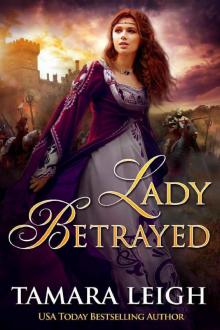 Lady Betrayed
Lady Betrayed Merciless
Merciless Nowhere, Carolina
Nowhere, Carolina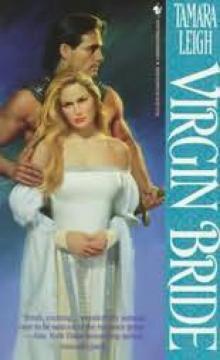 Virgin Bride
Virgin Bride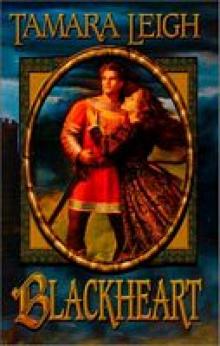 Blackheart
Blackheart Restless in Carolina
Restless in Carolina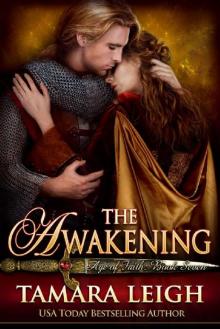 THE AWAKENING_A Medieval Romance
THE AWAKENING_A Medieval Romance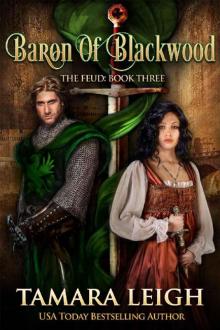 Baron of Blackwood
Baron of Blackwood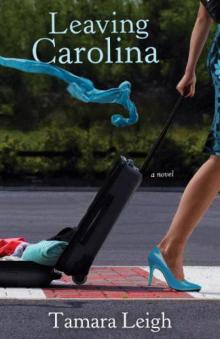 Leaving Carolina
Leaving Carolina HEARTLESS: A Medieval Romance (Age of Conquest Book 4)
HEARTLESS: A Medieval Romance (Age of Conquest Book 4) Baron of Godsmere
Baron of Godsmere Lady Of Eve
Lady Of Eve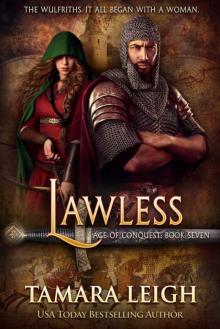 LAWLESS: A Medieval Romance (AGE OF CONQUEST Book 7)
LAWLESS: A Medieval Romance (AGE OF CONQUEST Book 7)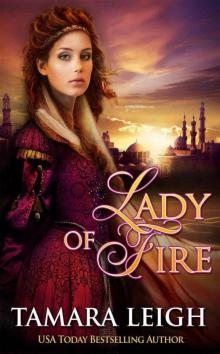 Lady Of Fire AKA Pagan Bride
Lady Of Fire AKA Pagan Bride The Yielding (Age of Faith)
The Yielding (Age of Faith) The Redeeming: Book Three (Age of Faith)
The Redeeming: Book Three (Age of Faith)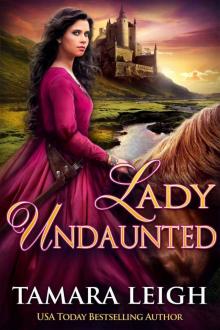 LADY UNDAUNTED: A Medieval Romance
LADY UNDAUNTED: A Medieval Romance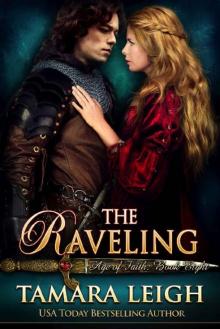 THE RAVELING: A Medieval Romance (Age of Faith Book 8)
THE RAVELING: A Medieval Romance (Age of Faith Book 8)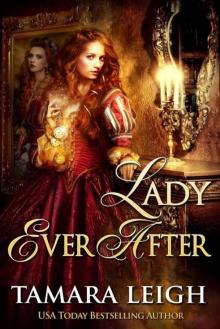 LADY EVER AFTER: A Medieval Time Travel Romance (Beyond Time Book 2)
LADY EVER AFTER: A Medieval Time Travel Romance (Beyond Time Book 2)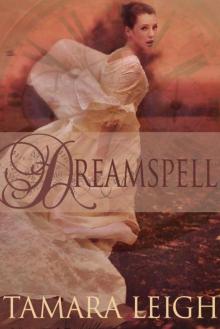 Dreamspell
Dreamspell The Unveiling (Age of Faith)
The Unveiling (Age of Faith)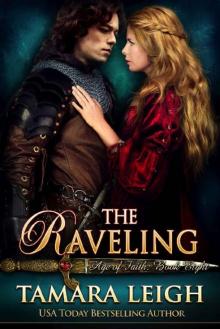 THE RAVELING
THE RAVELING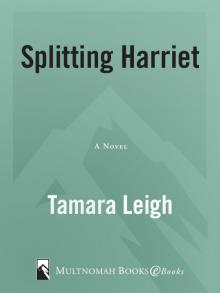 Splitting Harriet
Splitting Harriet Age of Faith 4 - The Kindling
Age of Faith 4 - The Kindling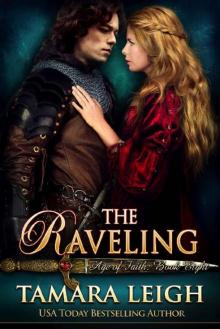 THE RAVELING_A Medieval Romance
THE RAVELING_A Medieval Romance Perfecting Kate
Perfecting Kate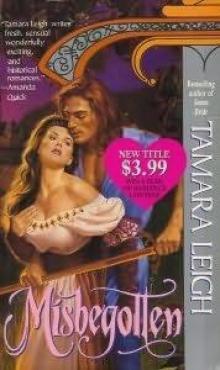 Misbegotten
Misbegotten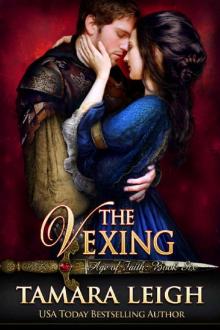 THE VEXING: A Medieval Romance (AGE OF FAITH Book 6)
THE VEXING: A Medieval Romance (AGE OF FAITH Book 6)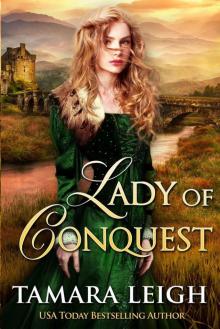 LadyOfConquest:SaxonBride
LadyOfConquest:SaxonBride